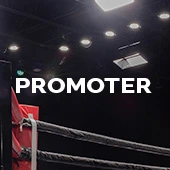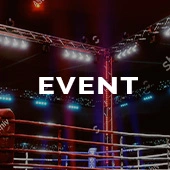There comes a time in every fighter’s life when they are judged less on how they fight and more on how they sound.
By then, of course, we know exactly how they fight and we know, just as they do, that they cannot change how they fight. However, the way they speak, that always changes. It often changes because of the way they fight and it changes simply because boxing, by its very nature, is a sport that guarantees a boxer finishes a career different from how they started.
For some boxers, the change from start to finish is clearly noticeable, stark, and sad. Yet, for others, the changes will be more subtle, picked up only by those closest to them, who have seen how success and punches to the brain have altered both the personality and habits of someone they love.
Outsiders, they can do no more than guess. They can use a little of what they have gleaned from studies, and from footage, and they can then draw their own conclusions when observing a boxer do one of the following: struggle to pull the trigger; struggle to find their timing; struggle to take punches they would have gobbled up in the past; struggle to express themselves with words.
That final concern, perhaps the greatest for a boxer, tends to manifest only later in life – at least for the lucky ones. By that stage they are asked fewer questions and their voice is no longer heard as much in public, but this still remains the boxer’s big fear; the one thing they didn’t sign up for. The rest – punch resistance waning, reflexes going, etcetera – are things of which a boxer is aware soon into their ring education, yet the loss of faculties and the ability to function like an ordinary civilian are seldom mentioned as side effects in gyms. Instead, these concerns typically materialise in the latter stages of a boxer’s career when they sense the end is nigh and results start to tactlessly agree.
Even then these concerns must be either minimised or shelved, however. After all, the only thing more vulnerable than an old fighter is a fighter who is old and scared. That is partly why fear is never welcome and why ignorance is as much an advantage in boxing as it is a failing. Possess just a smidgen of it and a boxer is better equipped to ignore the inevitability of their fate and keep going, blissfully unaware.
“I remember listening to the great Alexis Argüello, who said, ‘They say the fighters are the last ones to know when it’s time to go – I want to be the first,’” said Barry McGuigan, the former world featherweight champion. “Those are my sentiments exactly.
“But I later realised that in actual fact the boxer is the first one to know but the last to admit it to themselves. That’s the truth. Guys know when they have lost the fire in their belly. They may stay in the game for financial reasons, and they may hype it up and everything else. They might miss the affirmation. And that’s the reason they come back. But they know when they’ve had enough.”
McGuigan, anything but ignorant, was one of those fighters with a propensity to overthink rather than refuse to think and his career was a reflection of this. He retired from boxing at the relatively young age of 28, having lost to Jim McDonnell on cuts, but had been considering retiring earlier on account of personal tragedy and both his mind and body not being in the kind of the shape he knew was required. In the end, he pushed it as far as it could go, and then that was it. Now, at 64, McGuigan is celebrated as one of boxing’s best orators, a man who not only remembers what happened, but still has the ability to convey what happened in eloquent and coherent sentences. It is, you might say, one of the perks of having foresight. Get out early and you have a better chance of going on longer. You might be able to get a second career. You might be able to reach the autumn and winter of life.
This issue, rightly or wrongly, has resurfaced in the past few days due to a selection of interviews featuring heavyweight Joe Joyce. Never the best talker, even when he started, Joyce, some believe, is now showing clear signs of regression in his speech and his ability to concentrate; signs apparent, they say, in every interview.
True or not, it is no feat of the imagination to suggest that the way Joe Joyce fights will have a detrimental impact on the way he talks. It is, alas, the deal a boxer makes when deciding how to fight and, in the case of Joyce, never has the Londoner had any qualms about taking punches to give some. This was in fact his strategy upon turning pro and it was only when Zhilei Zhang reminded him of its flaws, not once but twice, that Joyce suddenly found himself scrutinised. Now, rather than the Juggernaut, or a thick-skulled man impervious to pain, he was seen as something else; something more human. Now people look at his all-or-nothing approach and see him not as an immovable force but a sitting duck, a big body open to every shot and therefore in danger of being repeatedly hurt.
As a result, fans are now inclined to listen more closely whenever Joyce speaks; not unlike how a referee edges closer to the action when they sense a fighter is flagging. We know, after all, that Joyce will not and cannot change his ways, in terms of fighting style, which means the only signs of change we can look out for are those in his behaviour outside the ring. It is in those moments, more so than seeing him in the ring, we feel we can get a better gauge of the damage his style and the punches received has done to him.
Some are certain of it. Take Dillian Whyte, for example. He was the man originally set to box Joyce this Saturday and he made his concern loud and clear when the pair met at a press conference to announce their fight.
“His [Joyce’s] main defense is to keep getting hit until you get tired and then he tries to knock you out,” Whyte said. “That’s his main defense. But it doesn’t work, bro. That’s why when you get asked a question, there’s like a 15-second silence before you answer. Clearly it’s not working. That’s why you blank out and go, ‘Errrrr… yeah.’ It’s not working. It’s all good now, but 10 years from now… Jesus Christ. You’re going to go to your house, the sat-nav will say you’re home, but you’ll be like, ‘I don’t live here.’”
Rather than an attempt to belittle or embarrass him, Whyte’s concern for Joyce seemed genuine and sincere and something, in his company, he could not ignore. Perhaps the truth is that Whyte, at 36, has similar concerns about his own career and health and was projecting or acknowledging this via the plight of someone else. Or perhaps, in the tradition of the drinker relieved to see someone sloppier than them, Whyte was getting false hope from being matched with a heavyweight in whose presence he sounded suddenly articulate, sharp, and fresh.
Either way, the concern for Joyce is growing with each interview he does. In a recent one with Queensberry, the casualness of his chat with Dev Sahni, the interviewer, just added to the meandering nature of Joyce’s thoughts and words, which many have interpreted as an ominous sign. Often, during this 10-minute interview, Joyce would turn a question back on Sahni, as though he couldn’t think of an answer himself, and occasionally too he would repeat something he had earlier said or, mid-sentence, forget what it was he wanted to say.
All of that, of course, could easily be attributed to something other than damage from boxing. It could, for example, simply be down to nerves, or a natural awkwardness. It could be a quirk of his personality, or a sign of boredom, or an indication of his desire to speak about something else. He could, like so many today, be distracted, his mind muddled not by punches but the demands of the modern world.
In some respects, too, it is not our job to judge Joyce, 16-3 (15). Most who do judge him will not know Joyce beyond the interviews he gives, which we have already established are not the best representation of the man and his mind. Added to that, the idea of telling a fighter he is “shot” or “damaged” while they are still actively competing seems almost cruel and careless and is certainly not our call to make.
Instead, it is the call of those around Joyce; those who know him best. Should they make it, this call, it won’t be the result of how he sounds in interviews – for his inner circle know these are not his forte – but rather how he performs on Saturday night against Filip Hrgovic, Whyte’s replacement. If, against Hrgovic, Joyce is unable to express himself the way he once did, by walking forward and taking punches to give punches, maybe then they will take a closer look at the 39-year-old and usher him towards retirement. If, on the other hand, he is back to something like his best, or he just wins, it becomes easier to watch him take punches and continue to frame it as part of the plan. It also becomes easier to listen to Joyce speak and say with a smile, “That’s just Joe. He has always been like that.”





